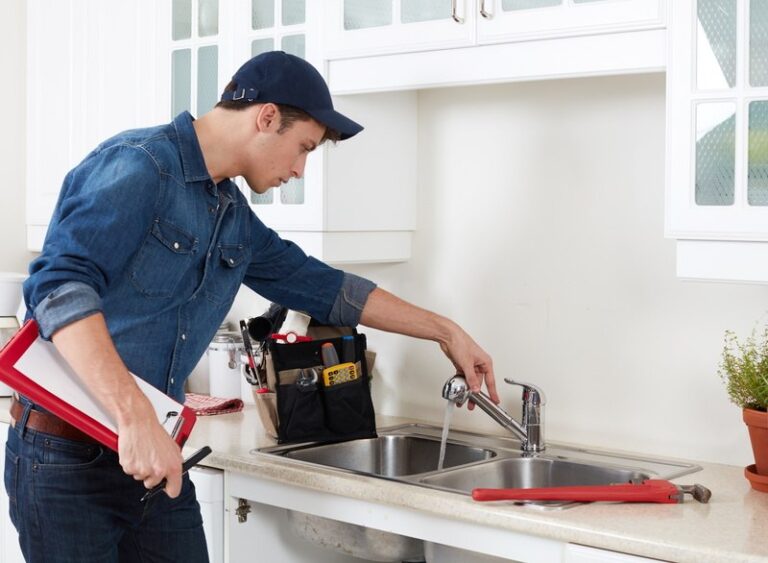Your water heater works hard every single day. It’s the unsung hero of your morning shower, your dishwashing routine, and about a million other daily tasks.
But most of us never think about this essential appliance until we’re standing in a cold shower wondering what went wrong.
The truth is, water heaters don’t last forever. But with proper care, you can add years to your unit’s life and avoid those surprise cold showers.
Professional plumbers know all the tricks to keep your water heater running smoothly for as long as possible. Let’s look at nine ways they can help you get the most out of your investment.
9 Tips A Professional Plumber Can Help Extend The Life Of Your Water Heater
When it comes to water heaters, a little prevention goes a really long way. Most homeowners don’t realize that regular maintenance can double the lifespan of their water heater.
That’s huge for your wallet and your peace of mind.
Performing Regular Inspections
Have you ever tried to figure out what that weird noise coming from your water heater means? Or wondered if that tiny leak is actually a big problem waiting to happen?
A professional plumber’s trained eye catches things most homeowners miss.
During an inspection, they’ll check the heating elements, thermostat, connections, and overall condition of your unit.
They listen for unusual sounds, look for early signs of wear, and spot potential issues before they turn into expensive emergencies.
Think of it like a check-up at the doctor’s. Catching problems early is always better than waiting for a complete breakdown.
Most pros recommend an annual inspection, but if your water heater is older or showing signs of trouble, you might want to schedule more frequent visits.
Flushing the Tank to Remove Sediment
Over time, minerals from your water settle at the bottom of your tank. This sediment layer acts like a blanket that traps heat, forcing your water heater to work harder.
The result? Higher energy bills and a shorter lifespan for your unit.
A reliable hot water plumber handles the tank flushing process correctly to remove all that built-up sediment.
They connect a hose to the drain valve, carefully control the water flow, and make sure all the gunky stuff gets completely flushed out.
They also know exactly how to refill the tank without damaging the heating elements.
For most homes, yearly flushing works well. But if you have particularly hard water, your plumber might suggest doing this every six months.
It’s one of the simplest yet most effective ways to extend your water heater’s life.
Checking and Replacing the Anode Rod
Inside your water heater lurks a simple metal rod with an incredibly important job. The anode rod attracts corrosive minerals in the water, sacrificing itself to protect your tank.
Without it, those same minerals would attack your tank instead, leading to leaks and failure.
Most homeowners don’t even know this rod exists until it’s too late. A right plumber will check the condition of your anode rod and replace it when needed.
This typically happens every 3-5 years, but it varies based on water quality and usage.
Replacing the anode rod is tricky because of tight spaces and the need for specialized tools.
When professionals handle this job, they ensure proper installation and can also recommend the right type of rod for your specific water conditions.
Some plumbers even install powered anode systems that last longer than traditional rods.
Adjusting the Temperature Setting
Did you know your water heater temperature affects both safety and efficiency? Many water heaters come preset at 140°F, which is hotter than most homes need and can waste a lot of energy.
A professional plumber can help you find that sweet spot—usually around 120°F—that provides plenty of hot water while reducing strain on your system.
They take into account your household size, daily hot water needs, and even concerns about bacteria growth when making recommendations.
They’ll also explain how to adjust settings during vacations to save energy and how seasonal changes might affect your hot water needs.
These small adjustments can add years to your water heater’s life by preventing overheating and reducing overall wear and tear.
Inspecting and Repairing Pressure Relief Valves
Every water heater has a temperature and pressure relief valve (T&P valve) that acts as a safety feature.
If pressure or temperature gets too high inside the tank, this valve opens to release the excess, preventing a potentially dangerous situation.
Over time, these valves can get stuck, leak, or fail completely. A professional plumber tests this valve to make sure it’s working properly and replaces it if needed.
They’ll also check the discharge pipe to ensure it’s properly installed and free from obstructions.
Testing these valves isn’t complicated, but fixing problems with them requires skill and knowledge.
If your valve is stuck or leaking, a plumber can replace it quickly and safely, making sure your water heater remains both functional and safe.
Insulating Pipes and the Heater Tank
Heat loss is a silent efficiency killer. As hot water sits in your tank or travels through pipes, it naturally loses heat to the surrounding air.
This means your water heater has to work overtime to keep water at the right temperature.
Professional plumbers can add insulation blankets to your water heater tank and foam sleeves to your hot water pipes.
These simple additions create a barrier that keeps heat where it belongs—in your water.
The benefits go beyond energy savings. When your water heater doesn’t have to constantly reheat water, its components last longer.
Insulation also helps deliver hotter water to faucets, reduces condensation on pipes, and can even prevent freezing in cold areas like garages or basements.
Checking for Leaks and Water Pressure Issues
Even tiny leaks can signal big problems with your water heater. Sometimes these leaks are obvious, but others hide behind the unit or start so small you might not notice them.
Plumbers know all the common leak spots—around fittings, valves, the bottom of the tank, and connected pipes.
They also check your home’s water pressure, which can put extra strain on your water heater if it’s too high.
By catching and fixing small leaks early, professionals help prevent water damage to your home and extend your water heater’s life.
They can install pressure regulating valves if your water pressure exceeds safe levels, protecting not just your water heater but all your home’s plumbing fixtures.
Upgrading Old or Worn Components
Water heaters have several parts that wear out faster than the tank itself. Heating elements, thermostats, valves, and gaskets all have different lifespans and may need replacement before the entire unit fails.
A skilled plumber can identify which components are showing signs of wear and replace just those parts, often giving your water heater several more years of reliable service.
They might suggest upgrades like better heating elements or smarter thermostats that improve efficiency and performance.
These targeted replacements cost much less than installing a new water heater and can significantly extend the life of your current unit.
Plus, newer components often work more efficiently, saving you money on energy bills.
Offering Expert Maintenance and Replacement Advice
When should you repair your water heater, and when should you replace it? This question confuses many homeowners, but professional plumbers can provide clear guidance based on your specific situation.
They consider factors like the age of your unit, repair history, efficiency, and your household needs.
Sometimes a simple repair makes the most sense, while other times investing in a new, more efficient model will save you money in the long run.
Plumbers can also teach you simple maintenance tasks you can do between professional visits, like checking for leaks or listening for unusual noises.
Their advice helps you make smart decisions about your water heater investment and avoid unnecessary repairs or premature replacement.
Conclusion
Your water heater might not be the most exciting part of your home, but it’s definitely one of the most important. With professional help, you can keep it running efficiently for years beyond its expected lifespan.
The next time your water heater filter makes a strange noise or your hot water isn’t quite hot enough, don’t wait until you’re facing a complete breakdown.
Call a professional plumber who can help you maintain this essential appliance and avoid those dreaded cold showers.
Remember, most water heater problems give warning signs before they turn into emergencies.
Learning to spot these signs—and knowing when to call in a pro—can save you money, time, and a whole lot of hassle.



